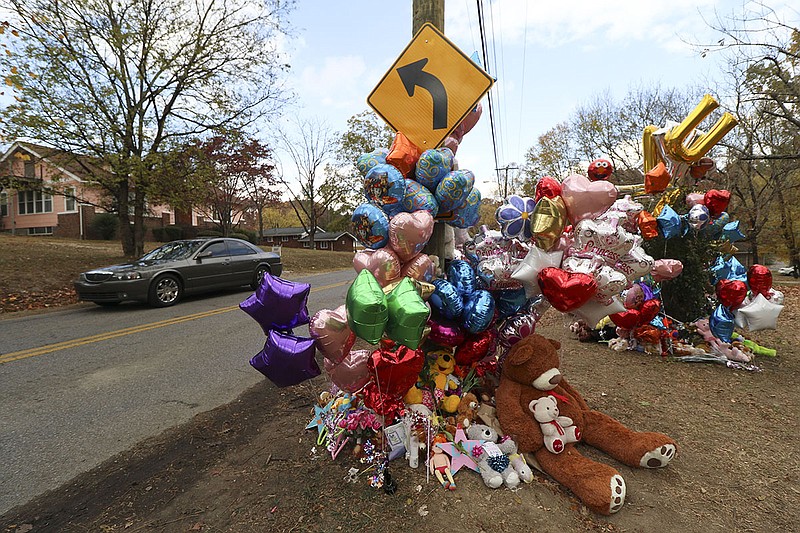
After the deadly Woodmore bus crash that killed six children in Brainerd in 2016, Jucinta Rome, a licensed clinical social worker at UT Erlanger Behavioral Health, sought to increase awareness about childhood trauma.
"I think sometimes when something tragic happens, everyone's on board right then," Rome said, "but not realizing that it takes time for healing to take place - kids aren't going to just go back to normal functioning."
Part of that effort includes organizing Erlanger's first childhood trauma symposium, where mental health providers, physicians, nurses, educators, parents and students met Friday at Chattanooga State Community College to share strategies for treating and caring for traumatized children.
"One of the major takeaways is trying to truly understand how our brains work and the impact traumatic experiences have on the childhood brain," she said. "When things are not taken care of as they should, it definitely affects them when they're older."
Abuse, neglect and instability are never healthy, but young, growing brains are even more susceptible to the negative effects of these traumatic events, often referred to by researchers as adverse childhood experiences, or ACEs.
Tonia Durand, a licensed professional counselor who spoke during the symposium, cited Maslow's hierarchy of needs - a psychological theory that says essential needs like food, water and sleep, followed by security, must be met before humans can focus energy on happiness, love and self-esteem. Kids who experience more stressors such as hunger, fear and abuse, or who witness repeated traumatic events, accumulate a higher "ACE score."
"With neglect, there is no higher functional development happening," Durand said. "Emotional development won't restart again until they feel safe and secure."
Public health efforts to reduce childhood trauma and toxic stress have gained traction since 1998, when the landmark ACEs study found a strong relationship between repeated exposure to abuse or household dysfunction during childhood and poor health in adulthood, including risky health behaviors, chronic health conditions, low life potential and premature death.
Jones said the region's high rate of chronic diseases has prompted many physicians to take a step back and look at their patients' health comprehensively by addressing emotional needs with hopes of improving their medical needs.
Encouraging more physicians to adopt the ACEs model is a trend that needs to continue, Durand said.
"A lot of times when I treat these patients, I'm the first one who's ever asked if they've been hurt, not the doctor," she said.
Treatment and care strategies, such as how parents can be responsive instead of reactive when disciplining traumatized children, also were a focus of Friday's symposium.
"It goes back to a knowledge base of how trauma influences our total self," Rome said. "When a person experiences trauma, especially as a child, it shatters trust especially if the caregiver was the perpetrator."
Durand said her beginning trauma recovery therapy sessions focus back on those basic life needs before ever tackling a client's history.
"The hardest thing is convincing [traumatized] people that they matter," she said. "But I tell people all the time we can repair this stuff. I consider therapy to be rehab - teaching them the skill set so they can go apply it."
Contact staff writer Elizabeth Fite at efite@timesfreepress.com or 423-757-6673.
